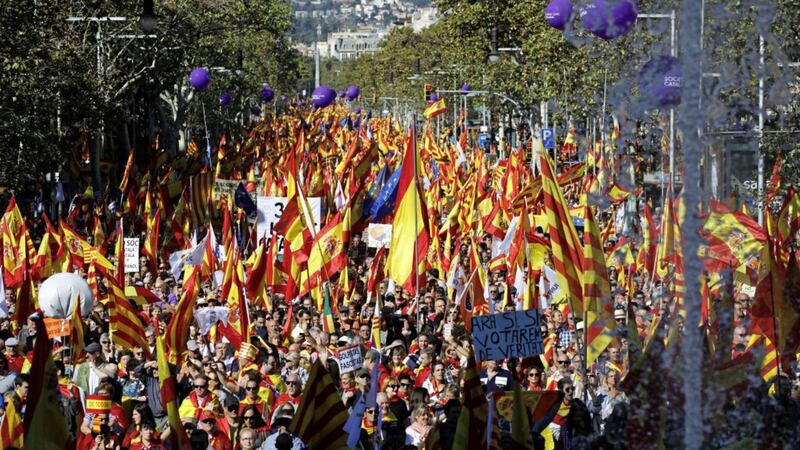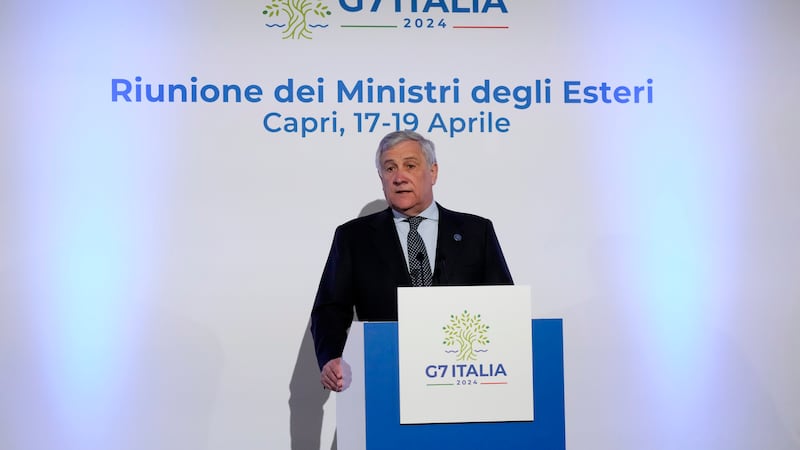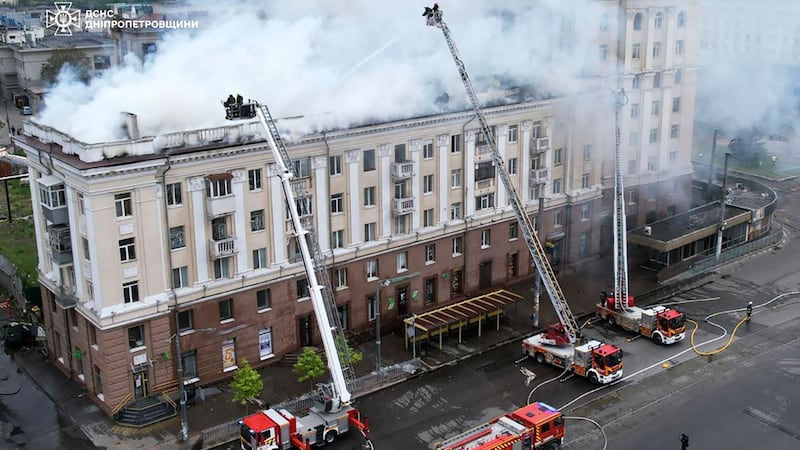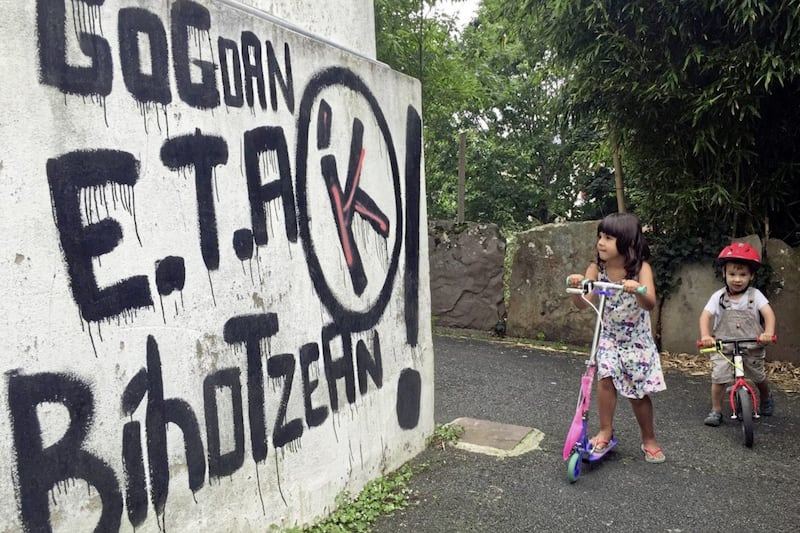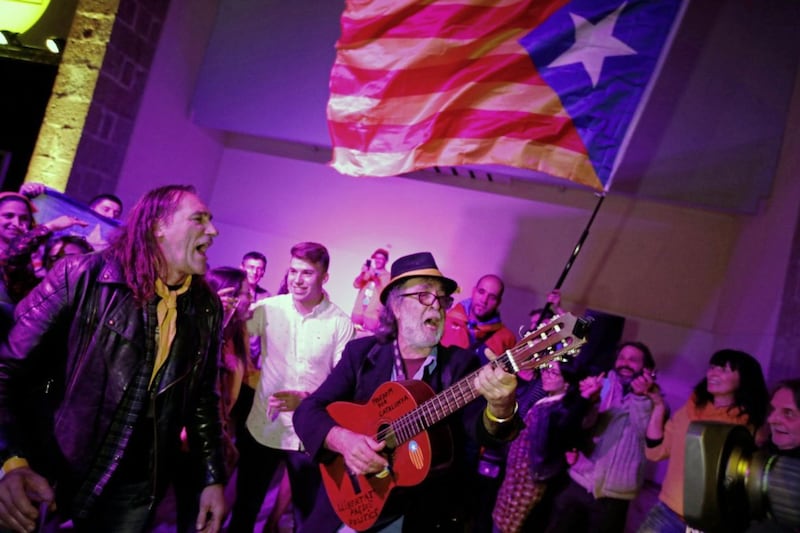Hundreds of thousands who want Catalonia to remain part of Spain have rallied in Barcelona, two days after separatists voted for the wealthy region to secede.
Organisers said the goal of Sunday's march's was to defend Spain's unity and reject "an unprecedented attack in the history of democracy".
Leaders of rival pro-union parties from the ruling conservatives, the pro-business liberals and the socialists joined together under the slogan "We are all Catalonia. Common sense for co-existence!"
Grassroots group Societat Civil Catalan called for those who oppose Catalonia breaking away to march at noon. Demonstrators, many waving Spanish, Catalan and European Union flags, flooded a central boulevard.
The mood was festive and jubilant, with no incidents reported.
Three weeks ago, the same group organised a mass rally that brought hundreds of thousands on to Barcelona's streets.
That was by far the largest pro-union show of force in Catalonia in recent years, in contrast to huge rallies by separatists.
"We have organised ourselves late, but we are here to show that there is a majority of Catalans that are no longer silent and that no longer want to be silenced," Societat Civil Catalana president Alex Ramos said.
Members of Spain's central government, including health minister Dolors Montserrat and Enric Millo, who is Madrid's representative in Catalonia, also attended the rally. No major pro-independence marches were expected.
Catalonia's separatist leader, who was sacked along with his regional government on Saturday, has called for Catalans to engage in peaceful opposition to Spain's crackdown to keep the country together.
The vote by pro-independence parliament members on Friday in favour of secession, and Madrid's response, triggering unprecedented constitutional powers taking control of Catalan affairs, was the climax of Spain's worst political crisis in decades.
Spanish prime minister Mariano Rajoy also dissolved Catalonia's parliament and called a new regional election for December 21.
Separatists won only 48 per cent of the vote in Catalonia in the last regional election in 2015, but took more seats because of Spanish election law which gives more weight to sparsely-populated areas.
The top politicians for pro-union parties wanted to use Sunday's rally as a launchpad for the critical elections in just over six weeks.
"It's time to take over the streets and take over the ballot boxes," said Albert Rivera, the leader of the centre-right Citizens party.
In an open letter in Catalan newspaper El Punt-Avui on Sunday, Oriol Junqueras, the ousted vice-president of Catalonia's rebellious government, said separatists should consider participating in the elections.
His call was in response to some secessionists who argue to boycott them.
The Catalan parliament's vote to secede came after an illegal October 1 referendum in Catalonia in favour of independence.
Spain's constitutional court had outlawed the vote and local opponents to secession boycotted the process after separatists broke parliament rules to push through its convocation.
Voting on the day itself was marred by violence when national police clashed with people attempting to cast their ballots, in what was widely seen in the region as a heavy-handed response by Spanish police.
But Spain's government said the police response was proportionate to the resistance officers met.
Ousted Catalan president Carles Puigdemont issued a televised message on Saturday, saying that he and other regional officials fired by Madrid would keep "working to build a free country" – a veiled refusal to accept his cabinet's dismissal as ordered by central authorities.
Following their official dismissal, Mr Puigdemont and the 12 members who until Saturday made up the Catalan cabinet, are no longer paid.
Spain's government has said they could be charged with usurping others' functions if they refuse to obey, which could throw the region into further turmoil by prolonging a month-long standoff.
Separately, a Belgian government official said it would be "not unrealistic" for Mr Puigdemont to ask for asylum and warned it would create serious diplomatic difficulties with fellow European Union member state Spain.
Asylum state secretary Theo Francken said on Twitter that "it is possible to ask for asylum as an EU subject" in Belgium, adding it was up to independent asylum authorities whether to grant it.
The 28-nation EU is considered a bloc where the rule of law applies and granting asylum based on arguments that repression would endanger the full exercise of one's rights would be exceptional.
"If you assess the situation at this stage, including the prison terms and the repression from Madrid," Mr Francken told VTM network, "there is the question whether a person like that can get a fair trial, of course."
In another tweet, he stressed Belgium was not seeking such a scenario.
"I am not rolling out the welcome mat," he said.
In the past, some Basque separatists have asked for asylum in Belgium and weren't extradited to Spain, causing years of friction.
